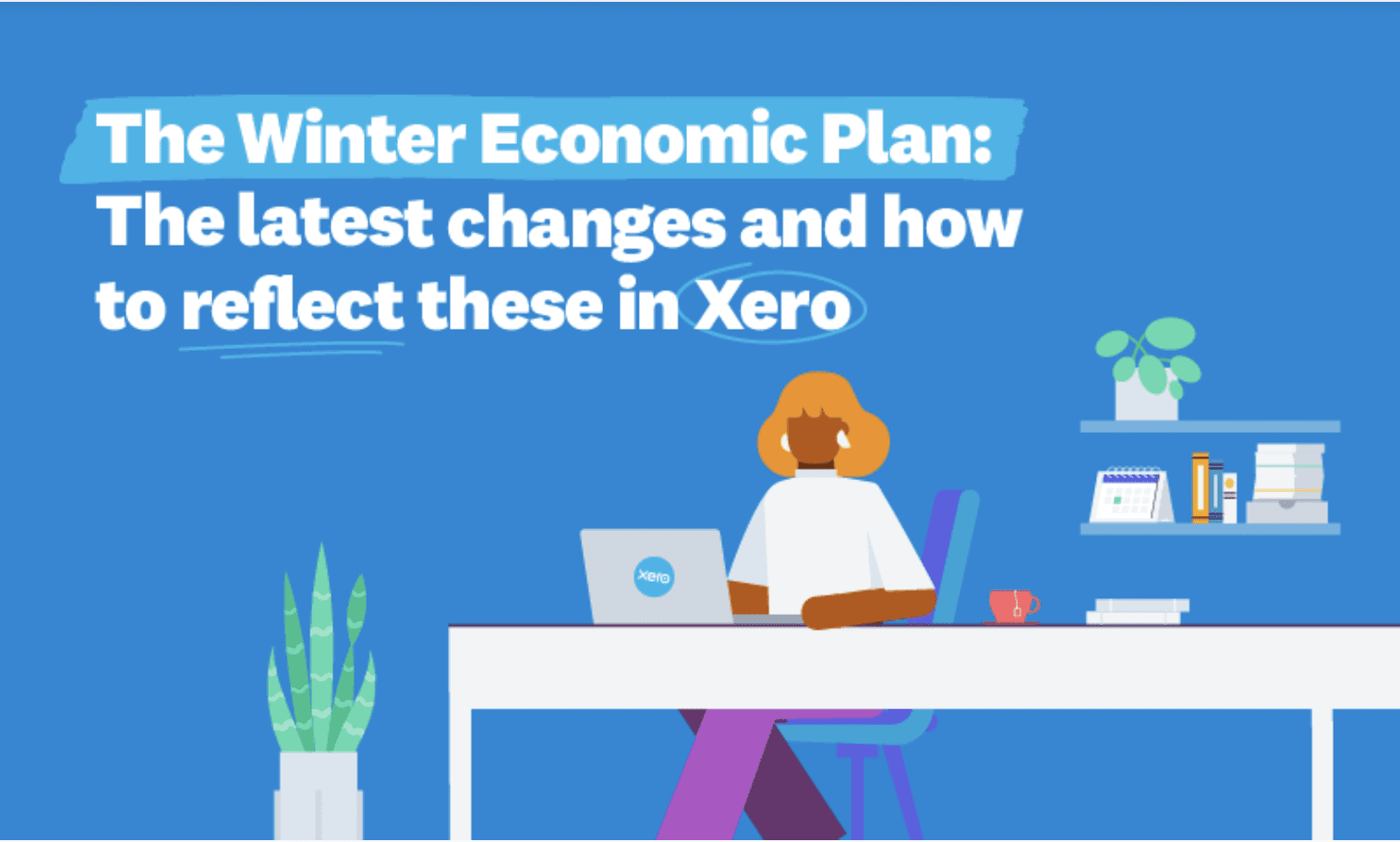
The Winter Economic Plan: The latest changes and how to reflect these in Xero


Updated Monday 9th November 2020
There has been a lot of change to the government support schemes over the last few weeks. The Chancellor announced a raft of new changes in his winter economic statement, however, many of these have been revised as restrictions have tightened.
As England enters its second national lockdown for the month of November, this support will be critical as small businesses face a tough winter of closures. Many will need to make important decisions to ensure their business survives.
Here’s a closer look at the key winter economic plan announcements and the latest amendments, along with information on how you can reflect some of these in Xero.
The Coronavirus Job Retention Scheme (furlough) extension
Furlough was set to end on 31st October and the Job Support Scheme (JSS) was due to replace it. However, the government has now extended the furlough scheme until March 2021 and will cover businesses across the UK.
Employees will receive 80% of their current salary for hours not worked, up to a maximum of £2,500. In addition to the cost of hours worked, employers will be responsible for the employer National Insurance Contributions (NICs) and pension contributions for the hours not worked. Under this extended scheme, the cost for employers of retaining workers will be reduced compared to the 60% support provided during the current scheme, which ended on 31st October. Over this extended period, both full-time furloughing and flexible furloughing will be allowed.
The Chancellor has said furlough will be reviewed in January “to decide whether economic circumstances are improving enough to ask employers to contribute more”.
For more information on how to record furloughed staff in Xero Payroll, read this blog article.
Self-Employed Income Support Scheme (SEISS) extension
The self-employment grant has been extended from November 2020 to April 2021 for self-employed individuals who are continuing to trade under reduced conditions and were eligible for SEISS initially.
This six month extension will come in the form of two grants. The first grant covers the start of November 2020 to end of January 2021 and will be 80% of average trading profits, but capped at £7,500. The second grant will be for February to the end of April 2021, and the amount is under review. You can find out more via the government website.
Business grants
Business premises forced to close in England are to receive grants worth up to £3,000 per month under the Local Restrictions Support Grant. Those forced to close will be eligible for the following:
- For properties with a rateable value of £15k or under, grants to be £1,334 per month, or £667 per two weeks;
- For properties with a rateable value of between £15k-£51k grants to be £2,000 per month, or £1,000 per two weeks;
- For properties with a rateable value of £51k or over grants to be £3,000 per month, or £1,500 per two weeks
VAT changes
Firstly, the government is extending the temporary reduced rate of VAT (5%) from the 12 January 2021 to 31 March 2021. This reduced 5% rate of VAT will apply to supplies of food and non-alcoholic drinks from restaurants, pubs, bars, cafés and similar premises across the UK. It’s easy to account for this reduced rate in Xero, this blog article has everything you need to know.
Secondly, any business who deferred VAT that was due in March to June 2020 now have the option to spread their deferred payments over the financial year 2021/22. That’s instead of having to pay in full at the end of March 2021. All businesses are eligible and will need to opt in to spread payments over an 11-month interest free period. More information can be found on the government website here.
Access to finance
The government has extended the application for deadlines on four of its Covid loan schemes until January. The schemes still available for small businesses are the Business Bounceback Loan (BBL) and The Coronavirus Business Interruption Loan (CBILS).
There are also some important updates to repayment timeframes:
- BBL – a new ‘Pay as you grow’ scheme giving businesses the option of repaying the loan over 10 years to reduce their monthly payments. The option of making interest only payments for 6 months and pausing repayments for 6 months if needed
- CBILS – the term of these loans can now be extended to 10 years and additional flexibility will be allowed for SMEs who may not be able to repay
It’s worth noting, that if a business is unsuccessful with one of the above, there are other lending options worth exploring.
All this information has been taken directly from HMRC and is subject to change. Please look out for future updates from HMRC and the government.




